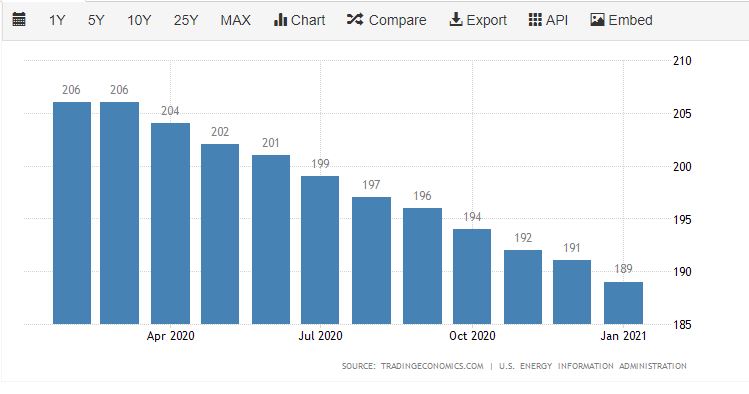Exxon Mobil’s exit from Ghana’s deep-water oil exploration is fast taking a political twist, primarily because Minority Parliamentarians are blaming President Nana Akufo-Addo’s government for the oil giant’s decision to pull out.
When Bloomberg broke the news on Monday, May 31, 2021, that Exxon was relinquishing its 80% stake in the Deepwater Cape Three Points block, no official sources were quoted to explain this move, feeding speculations – first from a former Deputy Energy Minister – that the pullout is yet another sign of government's poor management of Ghana’s oil and gas sector.
John Abdulai Jinapor, a Deputy Energy Minister and currently a Ranking Member on the Mines and Energy Committee of Parliament led the Minority’s attack on the Akufo-Addo administration for Exxon Mobil’s exit.
“It is unfortunate that despite President Akufo-Addo inheriting a well-functioning and promising oil sector from his predecessor with 3 producing fields (i.e. Jubilee, TEN and Sankofa Gye Nyame), the sector has continued on a downward trend mainly due to underhand dealings and a high-level opacity in the sector,†the Yapei Kusawgu MP posted a statement containing this position of the Minority on his timeline.
READ ALSO: Minority blames Akufo-Addo for ExxonMobil's exitÂ
He then granted a radio interview to state that Exxon Mobil’s exit from Ghana's oil exploration sector has begun a ripple effect in the sector, predicting that Aker Energy, another prominent foreign player in the sector will soon exit Ghana.
The current Energy Ministry is yet to respond to the Minority’s views on the foregoing after Prime News requested a comment.Â
However, Prime News’ sources with deep insights in the sector have been breaking down the issues, and their explanations are markedly different from the Minority MPs’.
Firstly, is Exxon Mobil leaving because of the government’s poor management of the sector?
Our experts explain that Exxon Mobil is what industry players call a Super Giant or Super Major. These are very big oil firms whose exploration activities hover around 500 million barrels or more. The top six Super Majors in the world right now are BP, Shell, Chevron, Total, Eni and Exxon.
Our sources say Ghana currently has around 50 million barrels of crude oil in the Cape Three Points block, which is far below Exxon Mobil’s projection.Â
Should the oil giant go ahead to explore this oil reserve, it will cost more and hence will not make economic sense.
So is Exxon Mobil leaving because of the current government’s poor management of the sector? The short answer is no.
The Energy Transition factorÂ
A second reason our sources gave for Exxon Mobil’s possible exit from Ghana is the ongoing shift by big oil companies from fossil energy to renewable energy or what is termed the Energy Transition.
Across the world, oil giants, backed by their parent countries are ditching fossil energy for renewable energy due to climate change. BP, Shell, Chevron, Total, Eni and Exxon have pumped billions into clean energy projects, but despite this, there is more pressure from their governments to spend even more.
Prime News sources say the relatively small number of barrels at the Cape Three Points block coupled with a possible pressure from the Joe Biden pro-climate change government, decision-makers at Exxon Mobil have decided to cut their losses while they still can.Â
The Ghana National Petroleum Corporation (GNPC), which has a 15% stake in the deserted oil block and the Ghana Oil Company (GOIL) which has the remaining 5%, will now look for a new operator for the block and pay Exxon Mobil its equivalent 80% stake in the oil block.
Does Exxon Mobil’s exit have implications for Ghana?
When a Super Giant leaves a country, it sends a bad message to the investment community. So Ghana’s Minority is right when it says Exxon Mobil’s exit threatens Ghana’s position as a preferred investment destination in the petroleum sector within the sub-region.
But the fact remains that Ghana’s petroleum sector is approaching a crisis point, and again this is not because of poor management of the sector by the current Akufo-Addo government.Â

- Crude Oil Production in Ghana decreased to 189 BBL/D/1K in January from 191 BBL/D/1K in December of 2020.
Our sources explained that Ghana’s petroleum sector is losing its shine because no new oil wells are being discovered.
The prediction is that in the next five years if Ghana does not discover new oils the sector will collapse. It's nature, not policy.
So, will Aker Energy too exit Ghana?
Contrary to the claim by Minority MPs, Aker Energy has said that it is not leaving Ghana any time soon.Â
In fact, the oil firm recently released a statement to announce the start of Geophysical and Geotechnical surveys on its Pecan field, describing it as a major step towards submission of a Plan of Development by the end of the year.
The Surveys, according to Aker Energy, are critical in optimising the Pecan Subsea Field Layout.
The data received from these surveys, Aker Energy has stated, will give accurate information around the integrity of the seabed and confirm that the subsea infrastructure can be safely positioned over the life of the field of the project.





